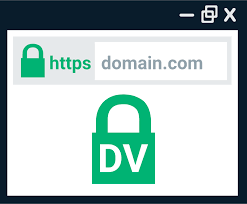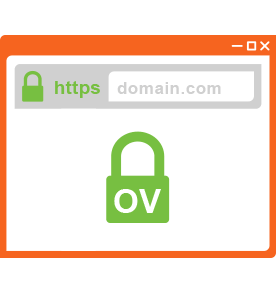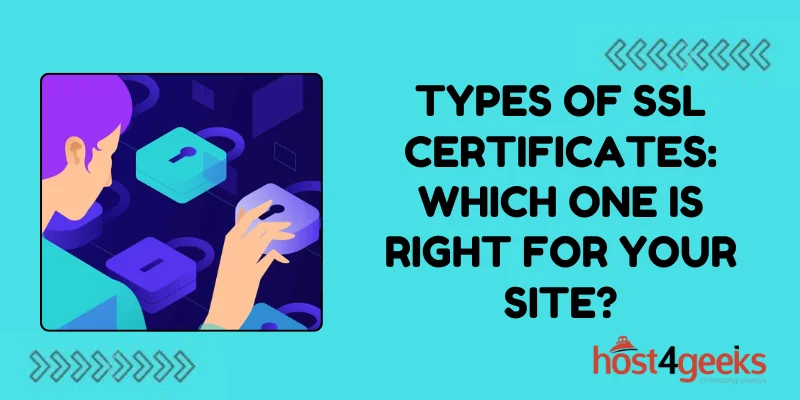In today’s digital age, security is paramount, especially when it comes to online transactions and sensitive data transfer. One of the essential tools for ensuring security on websites is SSL (Secure Sockets Layer) certificates.
These certificates encrypt data exchanged between a web server and a user’s browser, preventing hackers from intercepting and accessing it. However, not all SSL certificates are created equal.
There are several types available, each offering different levels of security and validation. Choosing the right types of SSL Certificates: Which One Is Right for Your Site? is crucial to ensure optimal protection and trust for your users.
1. Domain Validated (DV) SSL Certificates:
Domain-validated SSL certificates are the most basic type of SSL certificate. They provide a low level of validation, mainly verifying domain ownership.
DV certificates are issued quickly and are typically the most affordable option. They are suitable for small websites, blogs, or personal sites where basic encryption is sufficient.

Pros:
- Quick issuance:
DV certificates can be issued almost instantly, making them ideal for websites that need immediate security.
- Cost-effective:
DV certificates are usually the cheapest option, making them accessible to individuals and small businesses.
- Easy to obtain:
The validation process for DV certificates is simple and straightforward, often requiring only proof of domain ownership.
Cons:
- Limited validation:
DV certificates do not provide extensive validation of the entity behind the website, which may reduce user trust.
- Basic encryption:
While DV certificates encrypt data between the server and the user’s browser, they do not offer the highest level of security.
2. Organization Validated (OV) SSL Certificates:
Organization-validated SSL certificates offer a higher level of validation compared to DV certificates. In addition to verifying domain ownership, the certificate authority also validates the organization behind the website.
This includes verifying the legal existence of the organization and its operational status. OV certificates are suitable for small to medium-sized businesses and e-commerce websites.

Pros:
- Enhanced trust:
OV certificates provide users with more confidence as they verify the legitimacy of the organization behind the website.
- Improved security:
OV certificates offer stronger encryption than DV certificates, ensuring better protection for sensitive data.
- Professional appearance:
Displaying an OV certificate on your website demonstrates a commitment to security and professionalism.
Cons:
- Longer issuance time:
OV certificates require more extensive validation, which can lead to longer issuance times compared to DV certificates.
- Higher cost:
OV certificates are typically more expensive than DV certificates due to the additional validation process.
3. Extended Validation (EV) SSL Certificates:
Extended Validation SSL certificates offer the highest level of validation and trust. In addition to verifying domain ownership and organization details, EV certificates also undergo a rigorous validation process, including verifying the legal identity and physical existence of the organization.
Websites with EV certificates display a green address bar in the browser, indicating the highest level of security and trustworthiness.

Pros:
- Maximum trust:
EV certificates provide users with the highest level of assurance, leading to increased trust and confidence in the website.
- Enhanced security:
EV certificates offer the strongest encryption, ensuring the highest level of protection for sensitive data.
- Improved visibility:
Websites with EV certificates display a prominent green address bar, making them stand out and instilling trust in users.
Cons:
- Costly:
EV certificates are the most expensive type of SSL certificate due to the extensive validation process and enhanced features.
- Longer issuance time:
The validation process for EV certificates is the most rigorous, leading to longer issuance times compared to DV and OV certificates.
Choosing the Right SSL Certificate for Your Site:
When selecting an SSL certificate for your website, consider the following factors:
1. Security Requirements:
Determine the level of security required based on the type of website and the sensitivity of the data being transmitted. E-commerce websites and sites handling sensitive information may require higher levels of encryption and validation.
2. Budget:
Consider your budget constraints when choosing an SSL certificate. DV certificates are the most affordable option, while EV certificates are the most expensive.
3. Trust and Credibility:
Evaluate how important trust and credibility are for your website. Websites handling financial transactions or sensitive data may benefit from the enhanced trust provided by EV certificates.
4. Issuance Time:
Assess how quickly you need the SSL certificate issued. DV certificates are issued almost instantly, while OV and EV certificates require longer validation processes.
5. Compliance Requirements:
Ensure that the SSL certificate you choose complies with industry standards and regulations, such as PCI DSS for e-commerce websites.
Step-by-Step Process:
1. Identify Your Security Needs:
Determine the level of security required for your website based on the type of data being transmitted and any compliance requirements.
2. Choose the Type of SSL Certificate:
Select the appropriate type of SSL certificate based on your security needs, budget, and trust considerations.
3. Purchase the SSL Certificate:
Purchase the SSL certificate from a reputable certificate authority or through your web hosting provider.
4. Generate a Certificate Signing Request (CSR):
Generate a CSR from your web server and provide the necessary information, including your organization details, for validation.
5. Complete the Validation Process:
Depending on the type of SSL certificate chosen, complete the validation process, which may involve verifying domain ownership, organization details, and legal identity.
6. Install the SSL Certificate:
Install the SSL certificate on your web server following the instructions provided by your certificate authority or web hosting provider.
7. Test the SSL Certificate:
Test the SSL certificate to ensure that it has been installed correctly and is functioning properly.
8. Monitor and Renew the SSL Certificate:
Regularly monitor the status of your SSL certificate and renew it before it expires to ensure continuous security for your website.
Conclusion:
In conclusion, selecting the right SSL certificate for your website is essential for ensuring optimal security and trust. Consider your security needs, budget, and trust requirements when choosing between DV, OV, and EV certificates.
By following the step-by-step process outlined above on types of SSL Certificates: which one is right for your site? you can obtain and install the appropriate SSL certificate for your site, providing peace of mind for both you and your users.
